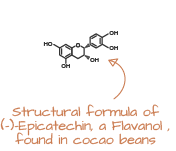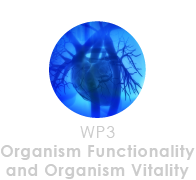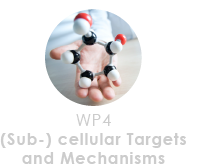
Scientific Framework
Project Scope
In order to gain a comprehensive and in-depth understanding of the function and delivery of flavanols, FLAVIOLA focused on a broad range of complementary aspects.We did analyse the uptake, bioavailability and metabolism of dietary flavanols from a variety of food matrices. Of particular interest was the potential variations caused by range of aspects including susceptibility, age and gender (inter and intra-individual variability).
In so doing, this research did set the stage for the targeted delivery of nutrients to their cellular and/or sub-celluar site of biological action and, as such, the development of health-promoting food delivery tools.
The project was divided into six work packages (WP), with each research partner leading on one or more aspects of the research:
In so doing, this research did set the stage for the targeted delivery of nutrients to their cellular and/or sub-celluar site of biological action and, as such, the development of health-promoting food delivery tools.
The project was divided into six work packages (WP), with each research partner leading on one or more aspects of the research:






